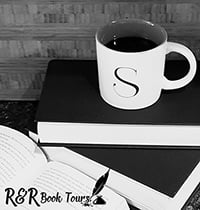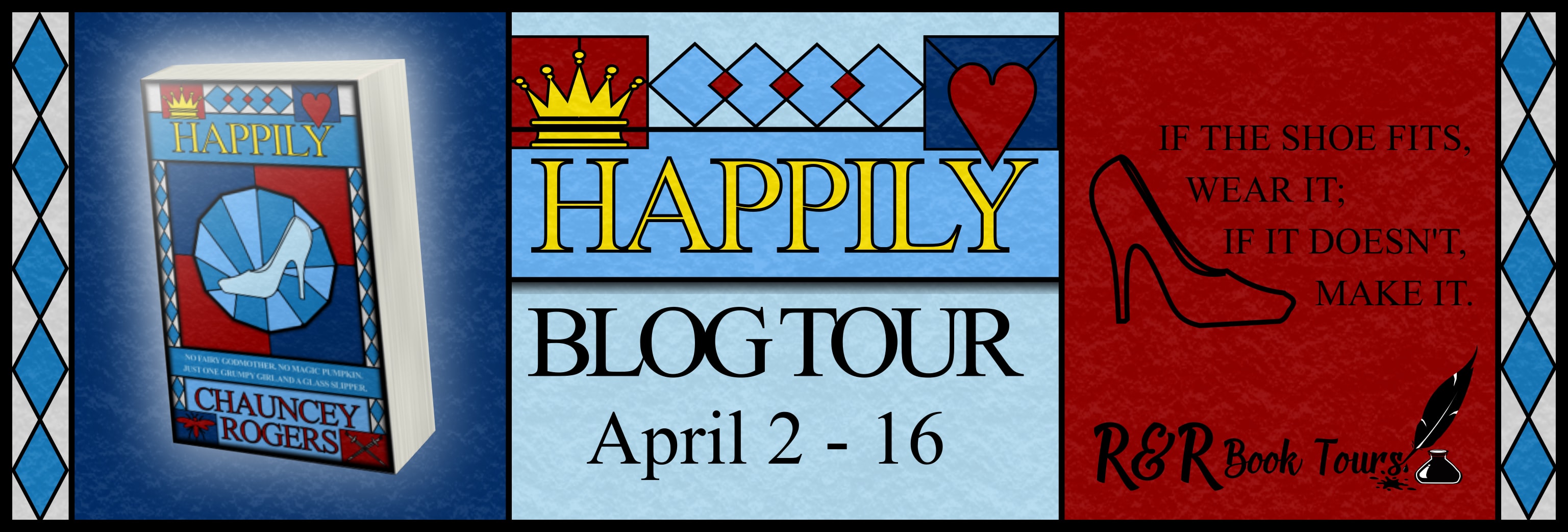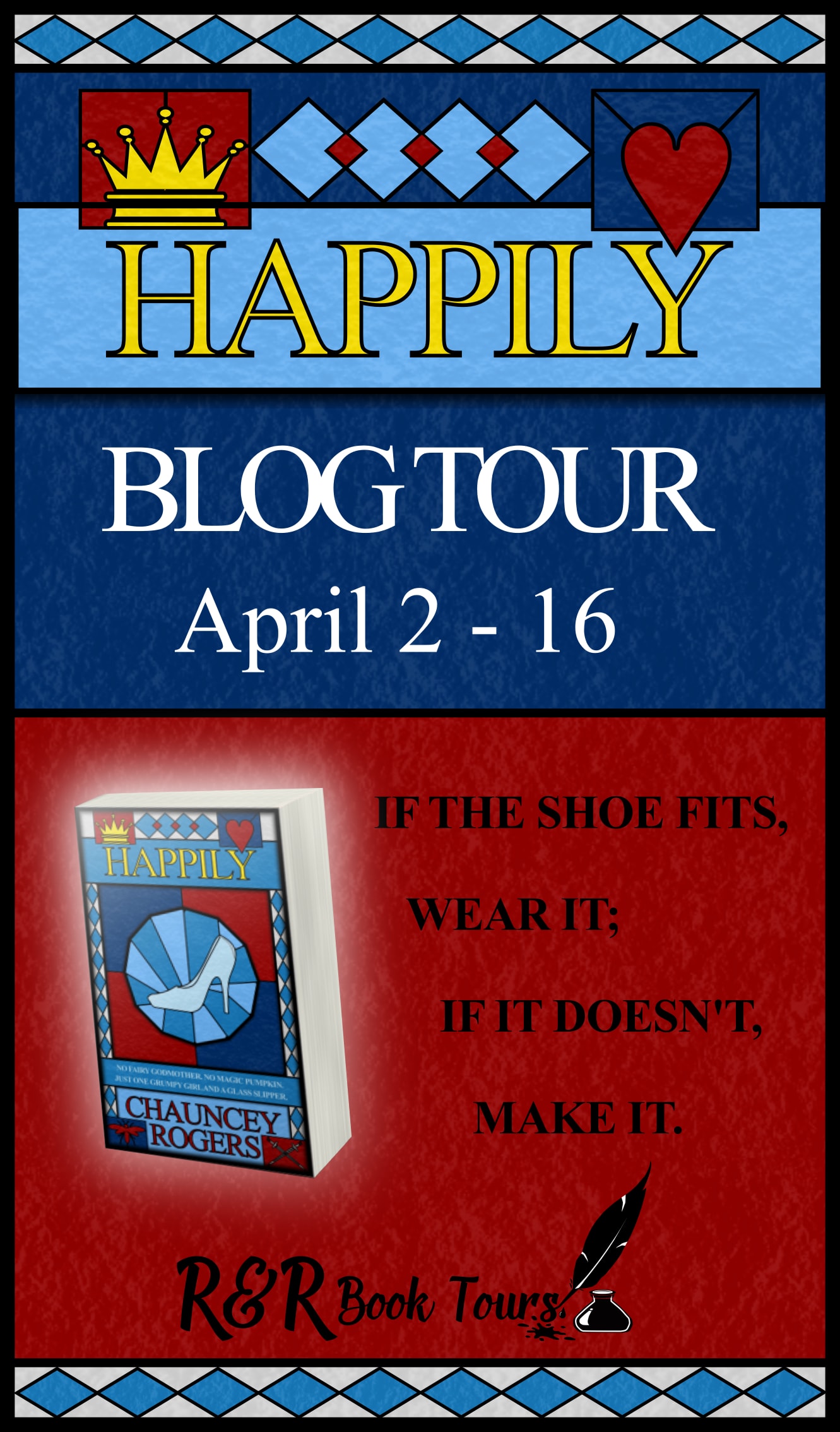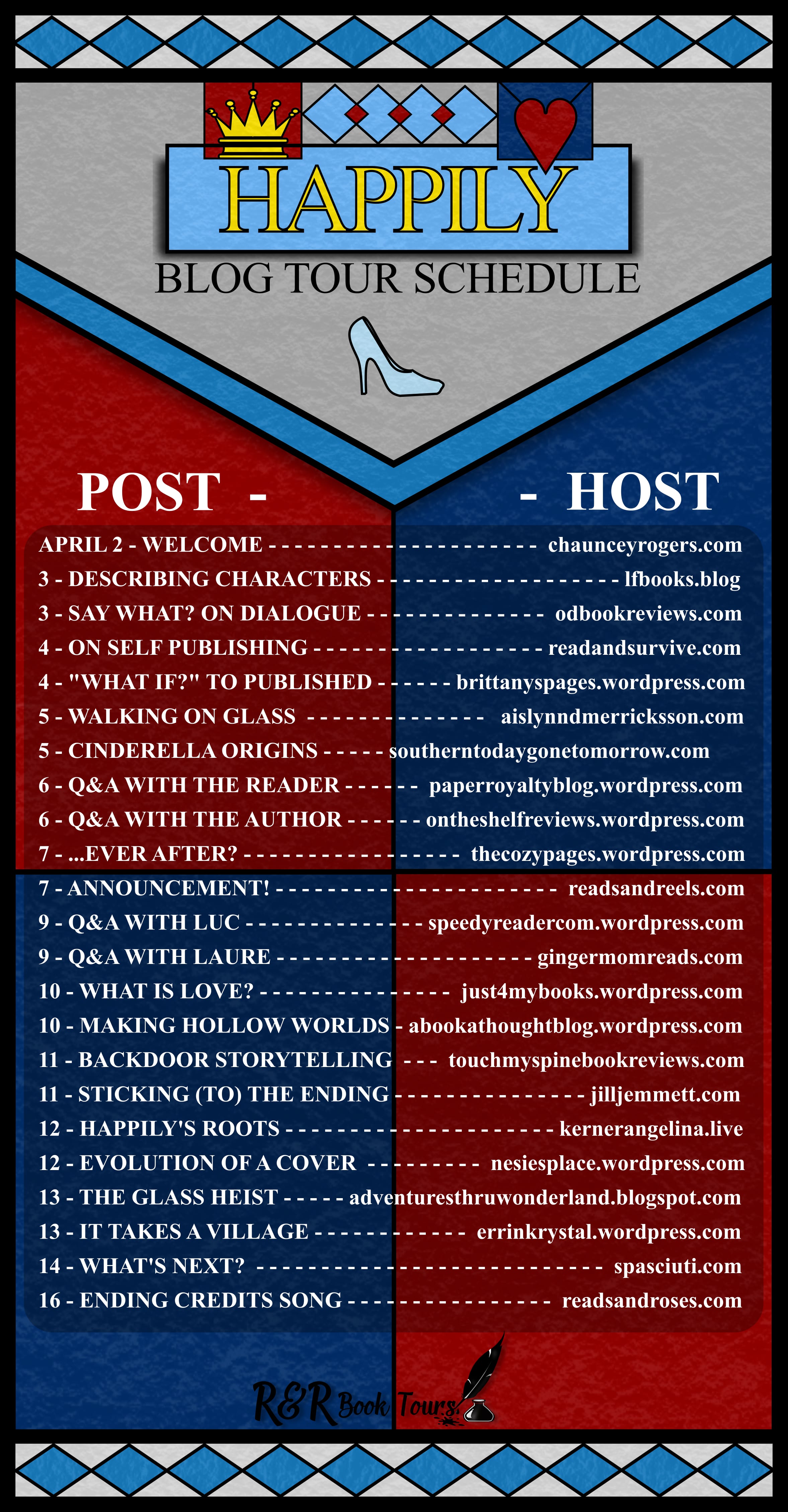Say What? — On Character Dialogue
Thanks O.D. Book Reviews for giving me some time on your blog!
I want to talk about character dialogue. It is such an important part of writing. What characters say and how they say it reveals a great deal about who they are, and can make or break a book.
Let me share a few quick tips for writing character dialogue, then I’ll talk about my dialogue choices for Happily.
- Write how people talk, but not really. People say things that don’t make sense, contradict themselves horribly, use poor grammar, mispronounce things, use run-ons and sentence fragments, etc. I studied linguistics and had to take verbatim notes on what people say and how they say it, and trust me when I say we all speak like we’re about six years old. Don’t have your characters talk like that, but don’t make everyone’s speech impeccable, either. The balance should lean one way or the other, depending on the character.
- Use accents carefully. We all know exactly how Hagrid speaks from simply reading Harry Potter and the Sorcerer’s Stone. All Rowling really did (as I recall) is drop his H’s from most things. I shamelessly did the same with a character in Happily. This is okay, but be careful not to have too many characters doing this, or too strong of accents written into characters—it will make dialogue sections choppier and slower to read. Even though it is generally better to “show” then “tell,” things will go more smoothly if you simply say that a character has a strong southern accent, rather than having him say things like, “Aym frum thuh mawdurn Sowth, ma’am.” (Pretty exaggerated, but you get the idea.)
- Your 8th grade English teacher lied. Do NOT try to come up with a billion ways to say “said.” Just use “said.” He said/she said/they said/I said. Use said. If you are going to use something else, make it a verb that described how they’re saying it, like whispered, yelled, screamed, muttered, etc. Do not say things like He stated/she questioned. They asked is okay, but use it sparingly. Mostly, just use “said.” Or, use nothing at all. Readers can often tell who is speaking without needing a direct speech tag.
There’s just a few little tips, which will hopefully be useful to somebody.
Now, for the dialogue choices in Happily, I want to talk specifically about the modern language of the characters. It was something that my wife and I discussed a fair amount, and it seems readers have taken sides on the discussion as well. I won’t say whose right and wrong, but I will say why I chose to give them modern language.
We’ll focus on Laure, and on two specific examples from the book, which stood out in my discussions with my wife. One is early in the book, when she finds herself on the brink of capture from the royal guards. In her narration, she says, “I was screwed.” Later in the book, she is looking at something that she and Luc have attempted to hide together, and she says something along the lines of it looking “sucky.”
Obviously these are hugely modern phrases, and rather crass ones at that. And they can seem a bit out of sorts in a pseudo-medieval fantasy setting. But in writing Happily, I was hoping to create characters that were very recognizable and relatable, and I balanced that desire against the creation of a believable fantasy world, and decided that I would let their speech be as modern as I wanted (barring any total anachronisms) in order to create very strong characters. And while I hope that Laure’s use of semi-modern slang doesn’t jar readers out of the reading experience, I also do feel that Laure’s use of those two words—screwed and sucky—are very revealing about her character as a bit rough and irreverent, with a little less of a filter than people expect from a “princess” story.
But that’s just my thoughts! My wife would have had it lean a bit more the other way. What about you? Did you appreciate the modern usage, or not? Do you feel characterization matters more in a story, or fidelity to the setting? Feel free to weigh in, even if you haven’t read Happily yet.
Day 2 of 13 of Happily’s Release Blog Tour. See the full schedule here.
Happily on GoodReads
Purchase Happily on Amazon!








Great post 😀
Really enjoyed this post! 🙂 I appreciated the modern dialogue in Happily, as it did help me develop a clear sense of Laure as a character. I also felt it strengthened her transformation from the beginning to the end of the story.
Thank you for commenting, that’s awesome! I only just started this book, so i’m looking forward to seeing that 🙂
I really enjoyed it, I hope you do too! Happy reading! 😊
I could not agree more with using “said.” As I learned from Gail Carson Levine, it disappears and you don’t even notice it when you read.